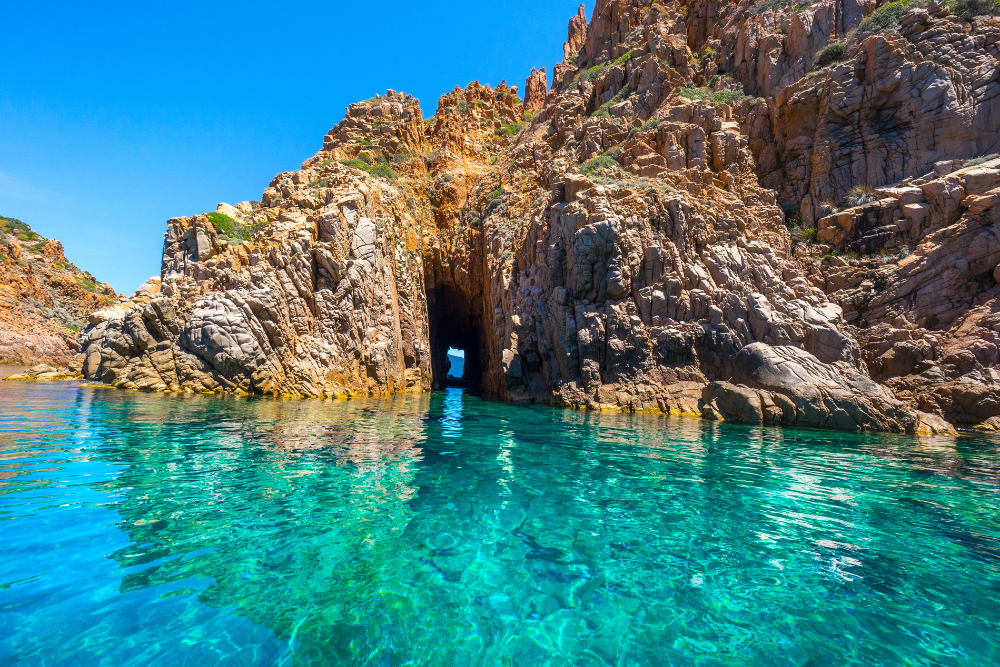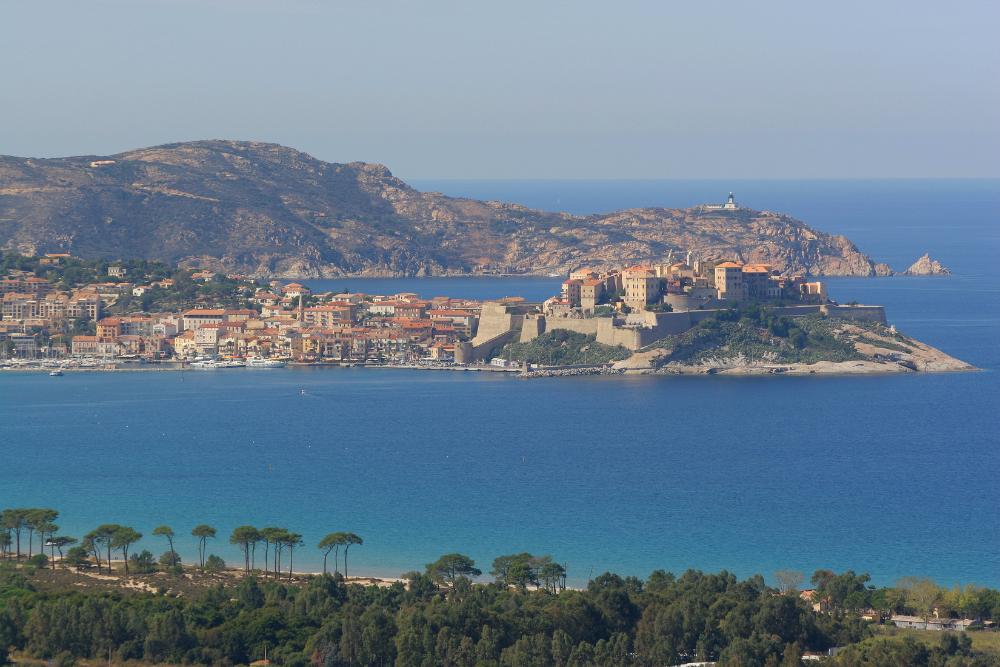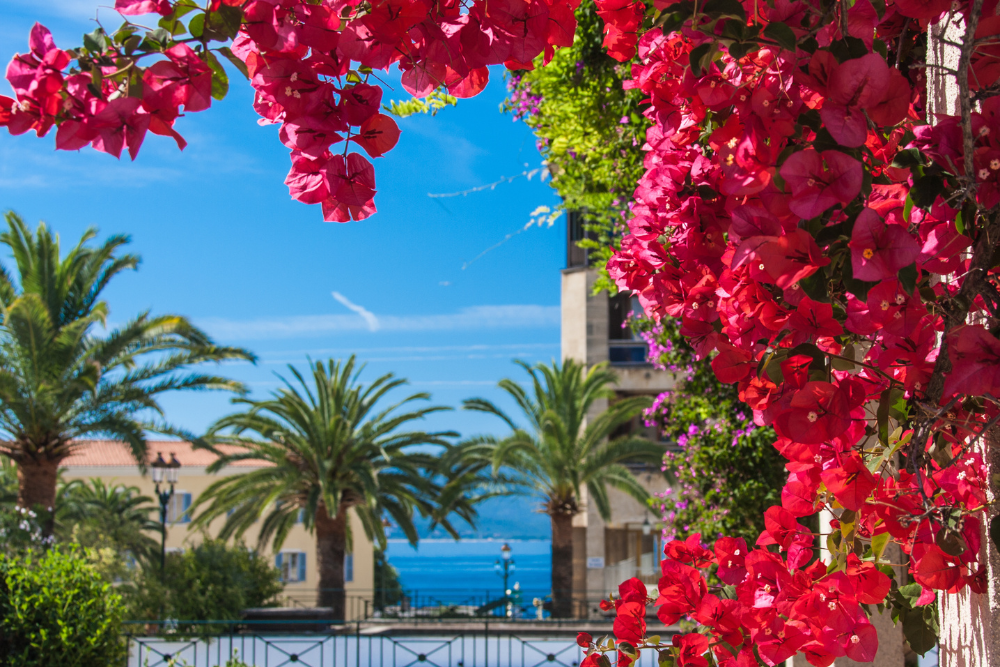Corsica, often referred to as the “Island of Beauty,” is one of the most stunning destinations in the Mediterranean. Located southeast of France and north of Sardinia, this French island boasts a diverse landscape that includes rugged mountains, picturesque beaches, charming villages, and a rich cultural heritage. Corsica’s unique blend of natural beauty, historical significance, and vibrant local culture makes it a must-visit destination for travelers seeking an unforgettable experience. Here are five compelling reasons why you should visit Corsica.
1. Breathtaking Natural Beauty
Corsica’s landscape is a major draw for nature lovers. The island is home to a variety of terrains, from its rugged mountain peaks to its stunning beaches and crystal-clear waters. The Monte Cinto, Corsica’s highest peak at 2,706 meters, offers a challenging yet rewarding experience for hikers and mountaineers, providing panoramic views of the island’s untouched beauty.
Must-See Natural Attractions:
- Scandola Nature Reserve: A UNESCO World Heritage site, this reserve is renowned for its dramatic cliffs, sea caves, and rich marine life. Accessible by boat, the reserve offers some of the most stunning coastal landscapes in the Mediterranean.
- The GR20 Trail: For avid hikers, Corsica’s GR20 is one of the most famous long-distance hiking routes in Europe. This challenging trail takes you through some of the island’s most stunning landscapes, including alpine meadows, dense forests, and rugged mountain passes.
- Beaches: Corsica is home to some of the Mediterranean’s most beautiful beaches, including Palombaggia, Santa Giulia, and Rondinara. These beaches feature soft white sand, clear turquoise waters, and a laid-back atmosphere perfect for sunbathing, swimming, and water sports.
Whether you’re a nature enthusiast or simply someone who enjoys the beauty of the outdoors, Corsica’s landscapes offer endless opportunities for exploration and relaxation.
2. Charming Villages and Coastal Towns
Corsica is dotted with charming villages and seaside towns that have retained their authentic character and traditional Mediterranean flair. Many of these villages are perched on mountain slopes or nestled along dramatic coastlines, offering a glimpse into the island’s rich cultural heritage.
Notable Villages to Explore:
- Bonifacio: Situated at the southern tip of the island, Bonifacio is a stunning town known for its white limestone cliffs, medieval architecture, and picturesque harbor. Wander through the narrow streets of the old town, visit the Citadel, and enjoy the panoramic views of the sea from the clifftop.
- Corte: Located in the heart of the island, Corte was once the capital of Corsica and is known for its charming medieval center and dramatic mountain setting. Visit the Citadel of Corte, which offers sweeping views of the surrounding mountains and valleys.
- Calvi: This coastal town is famous for its beautiful beaches, historic citadel, and vibrant nightlife. Calvi’s old town is a maze of cobbled streets lined with cafes, shops, and restaurants, offering a perfect blend of history and relaxation.
- Pigna: A traditional mountain village, Pigna is known for its preserved Corsican culture. Explore the narrow streets, visit the local artisan shops, and enjoy the stunning views of the surrounding countryside.
Corsica’s villages provide a sense of authenticity and history, offering a glimpse into local life that has remained largely unchanged for centuries.
3. Rich History and Culture
Corsica has a rich and diverse cultural heritage, shaped by its long history of conquest and influence from various civilizations. From the ancient Greeks and Romans to the Genoese and the French, Corsica’s culture is a fascinating blend of traditions, languages, and influences.
Historical Highlights:
- Ajaccio: The birthplace of Napoleon Bonaparte, Ajaccio is a city steeped in history. Visit the Maison Bonaparte, the house where Napoleon was born, and learn about his early years and his family’s legacy in Corsican history.
- Genoese Towers: Corsica is dotted with Genoese towers, built by the Genoese during their rule over the island in the 16th century. These defensive structures are scattered across the island’s coastline and are a reminder of the island’s complex history.
- Prehistoric Sites: Corsica is home to numerous prehistoric sites, including megalithic tombs and ancient stone monuments. The Filitosa archaeological site is one of the most famous, offering visitors a glimpse into Corsica’s prehistoric past.
- Corsican Traditions: Corsica has its own distinctive culture, with its own language, music, and cuisine. Traditional Corsican music, especially polyphonic chanting, is a unique part of the island’s heritage, and the Corsican language is still spoken by many locals today.
For history buffs and those interested in culture, Corsica offers a wealth of fascinating landmarks and traditions that tell the story of this unique island.
4. Delicious Corsican Cuisine
Corsican cuisine is a fusion of French and Italian influences, with a heavy emphasis on local produce, meats, and seafood. The island’s unique geography and climate contribute to the creation of distinct flavors, making Corsican food a treat for the senses.
Culinary Highlights:
- Cheese: Corsica is famous for its variety of cheeses, many of which are made from sheep or goat’s milk. Try brocciu, a fresh cheese often used in savory dishes like frittata or in desserts like fiadone.
- Charcuterie: Corsican charcuterie is a must-try, particularly the figatellu (a smoked sausage made with pork liver) and prisuttu (Corsican ham). These meats are often enjoyed with a glass of local wine.
- Seafood: With its coastal location, Corsica offers a wide range of fresh seafood, including lobster, mussels, and octopus, often served in Mediterranean-style dishes.
- Wine: Corsica produces some excellent wines, including reds made from the local Nielluccio and Sciaccarellu grapes. Pair your meal with a glass of local wine for a truly Corsican dining experience.
- Honey and Chestnuts: The island is also known for its chestnuts, which are used in a variety of dishes, including chestnut flour used for making polenta and honey that is unique to the island.
Corsican cuisine is deeply tied to the island’s agricultural traditions and the bounty of the surrounding seas, providing a delicious and authentic culinary experience.
5. Outdoor Adventures and Activities
Corsica’s diverse landscapes make it an ideal destination for outdoor enthu  siasts. Whether you’re a fan of hiking, water sports, or mountain biking, Corsica offers a wealth of activities to suit all interests.
siasts. Whether you’re a fan of hiking, water sports, or mountain biking, Corsica offers a wealth of activities to suit all interests.
Popular Activities:
- Hiking: The GR20 trail is one of the most famous hiking routes in Europe, attracting experienced hikers from around the world. If you prefer a gentler hike, there are many shorter trails through Corsica’s mountainous and coastal regions.
- Water Sports: The island’s crystal-clear waters are perfect for activities like kayaking, snorkeling, and windsurfing. For those interested in diving, Corsica is home to several diving spots with rich marine life and underwater caves.
- Cycling: Corsica’s varied terrain offers excellent opportunities for cycling, whether on the challenging mountain roads or along the coastal paths.
- Rock Climbing: Corsica’s cliffs and rocky terrain provide excellent opportunities for rock climbers, with numerous spots offering both beginner and advanced routes.
- Wildlife Watching: The island is home to a variety of wildlife, including wild boar, mouflon sheep, and golden eagles. Wildlife enthusiasts will enjoy exploring Corsica’s nature reserves, such as the Regional Natural Park of Corsica.
Whether you’re an adrenaline junkie or just looking to enjoy the great outdoors, Corsica provides endless opportunities for adventure.
Conclusion
Corsica is an island of contrasts—where rugged mountains meet pristine beaches, ancient history blends with vibrant culture, and outdoor adventure is just as plentiful as relaxation. Whether you’re drawn to its natural beauty, rich history, delectable cuisine, or outdoor activities, Corsica offers something for every type of traveler. The island’s blend of French and Italian influences, combined with its unique charm and welcoming locals, makes it one of the Mediterranean’s best-kept secrets. With so many reasons to visit, Corsica is undoubtedly a destination worth exploring.












